Tomato paste, a staple in many kitchens, is a common ingredient that adds flavor and thickness to various dishes. While it offers convenience and enhances the taste of meals, it is essential to understand that there are certain drawbacks associated with its consumption. In this article, we will shed light on some of the unhealthy aspects of tomato paste, thus encouraging consumers to make informed choices when using this popular pantry item.

.
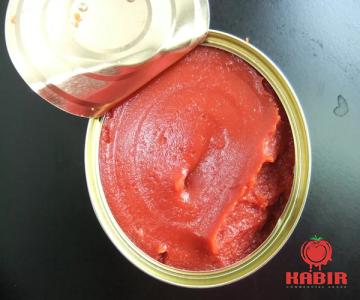 1. High Sodium Content: One of the primary concerns regarding tomato paste is its high sodium content. While tomatoes themselves are a healthy fruit with numerous benefits, the process of concentrating them into paste form often involves adding a significant amount of salt. This elevated sodium intake can contribute to increased blood pressure and potential heart-related problems for individuals who already have a sodium-sensitive diet. 2. Added Sugars: Another area of concern lies in the amount of added sugars present in tomato paste. Many commercial varieties commonly contain added sugars to enhance the taste and counterbalance the natural acidity of tomatoes.
1. High Sodium Content: One of the primary concerns regarding tomato paste is its high sodium content. While tomatoes themselves are a healthy fruit with numerous benefits, the process of concentrating them into paste form often involves adding a significant amount of salt. This elevated sodium intake can contribute to increased blood pressure and potential heart-related problems for individuals who already have a sodium-sensitive diet. 2. Added Sugars: Another area of concern lies in the amount of added sugars present in tomato paste. Many commercial varieties commonly contain added sugars to enhance the taste and counterbalance the natural acidity of tomatoes.
..
 Excessive sugar consumption has been linked to various health issues, including obesity, diabetes, and an increased risk of heart disease. Thus, individuals should be cautious about using tomato paste as a regular part of their diet, especially if they are already consuming sugars from other sources. 3. Reduced Nutritional Value: The process of turning tomatoes into paste reduces their overall nutritional value. While tomatoes are naturally packed with vitamins A and C, folate, and antioxidants like lycopene, the cooking and concentrating process involved in producing tomato paste results in some nutrient loss. Although tomato paste retains a certain level of vitamins and minerals, it is an inferior source compared to consuming fresh tomatoes. Therefore, individuals who rely solely on tomato paste might miss out on essential nutrients necessary for maintaining a balanced and healthy diet.
Excessive sugar consumption has been linked to various health issues, including obesity, diabetes, and an increased risk of heart disease. Thus, individuals should be cautious about using tomato paste as a regular part of their diet, especially if they are already consuming sugars from other sources. 3. Reduced Nutritional Value: The process of turning tomatoes into paste reduces their overall nutritional value. While tomatoes are naturally packed with vitamins A and C, folate, and antioxidants like lycopene, the cooking and concentrating process involved in producing tomato paste results in some nutrient loss. Although tomato paste retains a certain level of vitamins and minerals, it is an inferior source compared to consuming fresh tomatoes. Therefore, individuals who rely solely on tomato paste might miss out on essential nutrients necessary for maintaining a balanced and healthy diet.
…
 4. Potential for Additives and Preservatives: Commercially produced tomato paste often contains additives and preservatives to extend its shelf life and enhance its color and flavor. While these additives are generally recognized as safe by regulatory bodies, some individuals may have sensitivities or allergies to them. Additionally, prolonged exposure to artificial additives may increase the risk of adverse health effects in the long run. Those seeking a more natural and additive-free diet should be mindful of the ingredients list before purchasing any tomato paste. Conclusion: While tomato paste undoubtedly adds flavor and richness to a wide range of recipes, it is important to be aware of its potential downsides. The elevated sodium, added sugars, reduced nutritional value, and the presence of additives and preservatives are all factors to consider when incorporating tomato paste into your diet. Moderation and balance are key when using this pantry staple. To maintain a healthy lifestyle, individuals should explore alternatives, such as using fresh tomatoes or seeking out low-sodium, low-sugar, and organic varieties of tomato paste.
4. Potential for Additives and Preservatives: Commercially produced tomato paste often contains additives and preservatives to extend its shelf life and enhance its color and flavor. While these additives are generally recognized as safe by regulatory bodies, some individuals may have sensitivities or allergies to them. Additionally, prolonged exposure to artificial additives may increase the risk of adverse health effects in the long run. Those seeking a more natural and additive-free diet should be mindful of the ingredients list before purchasing any tomato paste. Conclusion: While tomato paste undoubtedly adds flavor and richness to a wide range of recipes, it is important to be aware of its potential downsides. The elevated sodium, added sugars, reduced nutritional value, and the presence of additives and preservatives are all factors to consider when incorporating tomato paste into your diet. Moderation and balance are key when using this pantry staple. To maintain a healthy lifestyle, individuals should explore alternatives, such as using fresh tomatoes or seeking out low-sodium, low-sugar, and organic varieties of tomato paste.

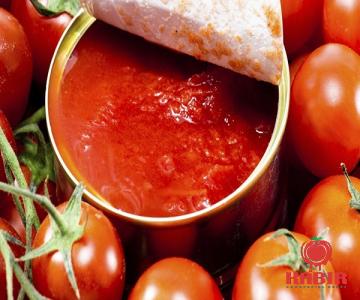



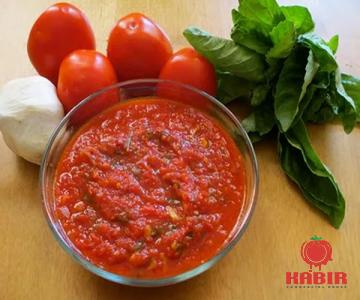
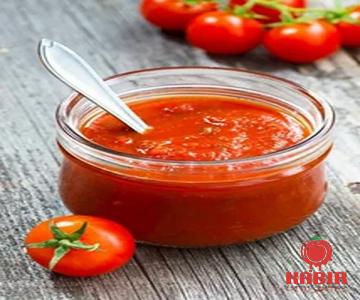


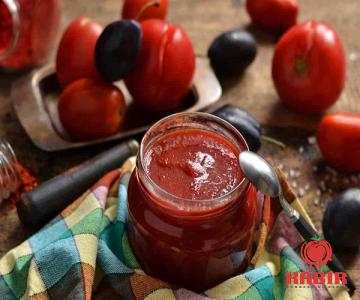
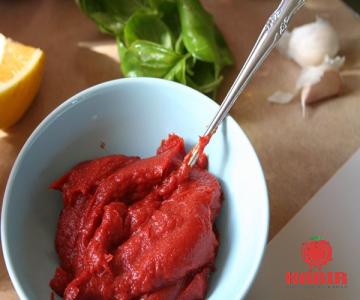
Your comment submitted.